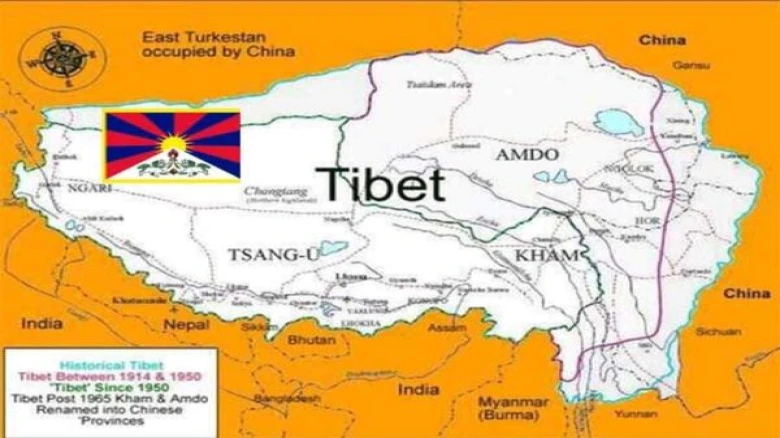Regional
His legacy reminds us of the importance of self-reliance, courage,...

Digital Desk: As Sunday commemorates the failed Tibetan uprising against China, the Dalai Lama, draped in red and yellow robes, encourages monks and nuns to pray, urging them to heal the world with compassion. Reflecting on the inevitable future without him, the 88-year-old spiritual leader emphasises the universal responsibility of being a good human being.
China maintains Tibet as an integral part of the country, raising concerns among exiled Tibetans about Beijing potentially appointing a rival successor to the Dalai Lama, further solidifying control over the region. Tsultrim, a 95-year-old Tibetan veteran of the 1959 uprising, warns against trusting Beijing, recounting the past when Tibetans rose against Chinese forces.
"We were asked to rise up to resist the invading Chinese army and to escort the Dalai Lama to exile," recalls Tsultrim, one of the last to remember a "free Tibet." Drawing attention to the historical perspective, he stresses the importance of scepticism towards Beijing.
The present scenario sees fewer Tibetans escaping to India, with activists citing increased monitoring and fear of repercussions for those attempting to leave. Tsering Dawa, a former bank manager from Lhasa, fled in 2020 due to concerns about re-arrest after exposing China's "vocational training centers." He describes the journey to India as a leap towards freedom, leaving behind possessions and enduring detention in 2015.
As the future looms uncertain, younger generations born in exile express anxiety about China's potential involvement in selecting the next Dalai Lama. Tenzin Dawa, a 31-year-old activist, voices concern over the loss of hope for returning to their ancestral home and notes the increasing emigration of Tibetans to Europe and North America.
"It is a big concern," she emphasizes. "The younger generations, it is they who have to carry on the movement."
Amid these uncertainties, Tibetans grapple with preserving their cultural identity and maintaining their struggle for autonomy.
Leave A Comment